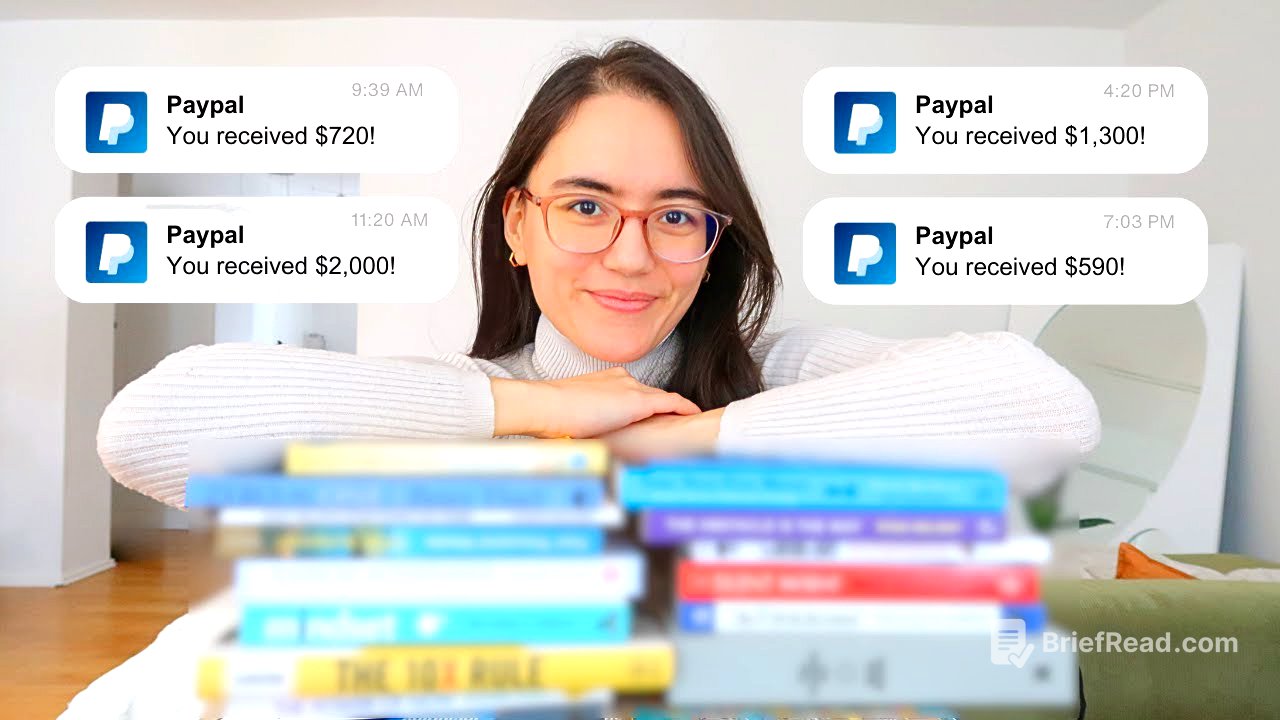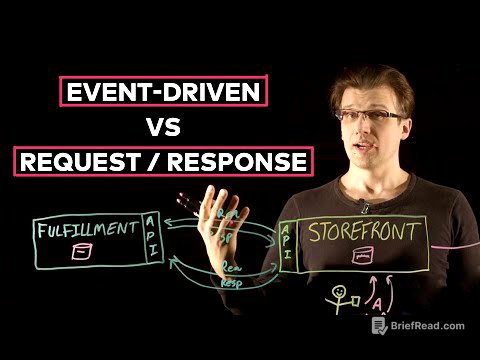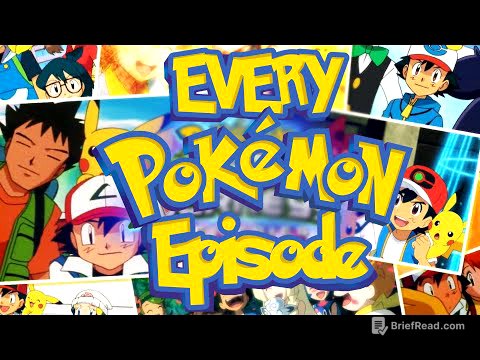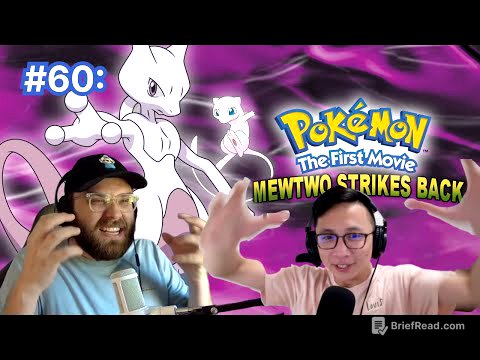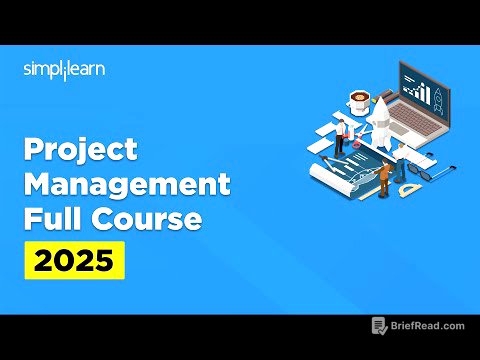TLDR;
This video provides a breakdown of 11 books that can help freelancers achieve six-figure incomes. It addresses four main reasons why freelancers might not be reaching their income goals and suggests actionable strategies from each book to overcome these challenges. The key areas covered include improving service offerings, finding clients, overcoming personal obstacles, and enhancing sales skills.
- Improving Service Offerings: Focus on mastering skills and providing value to clients.
- Finding Clients: Increase outreach efforts and provide value upfront.
- Overcoming Personal Obstacles: Recognize and push through the "dip" and self-sabotaging behaviors.
- Enhancing Sales Skills: Embrace transparency, listen actively, and be willing to walk away.
Nobody Wants to Buy What You're Selling [0:49]
This section addresses the issue of freelancers offering services that don't attract clients. The first book discussed is "So Good They Can't Ignore You" by Cal Newport, which emphasizes the importance of mastering a skill and providing value to the market. Instead of focusing on personal passions, freelancers should identify market needs and build "career capital" by continuously learning and improving. This involves investing time and resources into acquiring new skills and knowledge, creating a freelance ladder with clear steps for career progression, including salary increases and benefits at each stage.
$100 Million Offers [5:19]
The next book is "$100 Million Offers" by Alex Hormozi, which focuses on creating irresistible offers. Freelancers should aim to provide so much value that clients feel it's a no-brainer to work with them. The hierarchy of importance is first, ensuring the offer is within a starving crowd, second, the strength of the offer, and third, persuasion skills. The perceived value of the offer must always exceed the price. It's crucial not to take rejections personally but to view them as feedback on the offer itself, and to play the long game by consistently nurturing client relationships.
Linchpin [9:05]
Seth Godin's "Linchpin" is discussed, highlighting the importance of standing out and being indispensable. This involves giving generously and providing value upfront to build trust and credibility. The concept of the "lizard brain," which represents resistance and fear of rejection, is introduced. Overcoming this fear by taking small steps outside of one's comfort zone is essential for growth.
Blue Ocean Strategy [11:11]
The "Blue Ocean Strategy" is presented as a way to avoid competing in saturated markets (red oceans) by solving bigger problems and developing indispensable skills. This involves identifying target clients and their significant pain points to create offers that are highly valuable and worth paying a premium for.
You Don't Know How to Find Clients [12:26]
This section addresses the challenge of finding clients, referencing Alex Hormozi's "$100 Million Leads." The key takeaway is that freelancers need to increase their outreach efforts. Average conversion rates are discussed, emphasizing the importance of volume to improve numbers over time. Giving value until they ask, similar to what Seth Godin talks about, and personalizing cold outreach are crucial for success.
Figuring Yourself Out [16:25]
This part focuses on overcoming personal obstacles, starting with Seth Godin's "The Dip." The "dip" is the long, challenging period between starting something new and becoming proficient. Successful people persevere through this phase, recognizing that it's a natural filter that separates those who are truly committed. The importance of being stubborn and focusing on controllable inputs rather than uncontrollable outputs is emphasized.
The Mountain is You [19:05]
Brianna Wiest's "The Mountain Is You" discusses self-sabotage and how it prevents individuals from reaching their goals. Self-sabotage often stems from valuing comfort over happiness and a belief that one is incapable of handling their needs. Recognizing and addressing self-sabotaging behaviors, such as resistance, perfectionism, and fear of failure, is crucial. The book encourages using anger at current circumstances as fuel for change.
You're Not Good at Selling Yourself [23:50]
This section provides strategies for improving sales skills, starting with "Start with No" by Jim Camp. Embracing "no" and inviting objections allows for addressing concerns and building trust. Transparency and honesty are essential for avoiding manipulative tactics and fostering open communication. The importance of silence in negotiations and being willing to walk away are also highlighted.
Never Split the Difference [27:17]
"Never Split the Difference" is discussed, emphasizing that negotiation is a process of discovery. Using calibrated questions to uncover information and allowing the other party to convince themselves of the solution is more effective than forceful persuasion. Mirroring, negotiating with "no" in mind, and validating emotions are key strategies.
Influence: The Psychology of Persuasion [29:48]
This section covers "Influence: The Psychology of Persuasion," highlighting principles such as reciprocity, scarcity, social proof, and commitment. Giving value upfront, communicating scarcity, sharing testimonials, and asking for small commitments can increase the likelihood of clients saying "yes."
Never Lose a Customer Again [32:12]
The final book discussed is "Never Lose a Customer Again," which emphasizes the importance of customer retention. Creating a comprehensive onboarding process, providing clear communication, and proactively addressing potential problems can lead to long-term client relationships.
